#albanian proverb
Text
"A man is washed clean with a glass of water, but the entire sea can't clean a woman."
—Albanian Proverb.
Meaning: Men are easily forgiven for the same mistakes with a small gesture, while women face ongoing judgment, revealing unfair expectations based on gender. This proverb shines a light on sexism within a culture, illustrating unequal forgiveness based on gender and emphasizing the need for awareness and change.
#albanian#albanian proverb#proverbs#proverb#arabic proverb#sexism#culture#aesthetic#quotes#old quotes#old#vintage#literature#book quotes#sea#ocean#inequality
362 notes
·
View notes
Text

#The Sun at home warms better than the sun elsewhere.#- Albanian Proverb#Want to buy a home in Dubai?#Want to invest in Dubai Real Estate Market?#Reach out to our specialist now.#☎ +971 52 955 2423#☎ +971-4 2500089#✉ [email protected]#🌐www.unitedestates.com#United Estates LLC Dubai#unitedestates#unitedproperties#propertymanagement#propertyinvestment#property#investment#invest#investinrealestate#roi#findhome#dreamhome#luxury#luxuryhomes#livingstyle#realestate#dubai#uae#emaar#damac#burjkhalifa
0 notes
Text
Aries in the 4th House
If you know you’re going home, the journey is never too hard. - Angela Wood
Taurus in the 4th House
The magic thing about home is that it feels good to leave, and it feels even better to come back. - Wendy Wunder
Gemini in the 4th House
Home is the place where, when you have to go there, they have to take you in. - Robert Frost
Cancer in the 4th House
You can have more than one home. You can carry your roots with you, and decide where they grow. - Henning Mankell
Bonus: Home isn’t a place, it's a feeling. -Cecelia Ahern
Leo in the 4th House
The sun at home warms better than the sun elsewhere. - Albanian Proverb
Virgo in the 4th House
Home is where my habits have a habitat. - Fiona Apple
Libra in the 4th House
Peace — that was the other name for home. - Kathleen Norris
Scorpio in the 4th House
Home isn’t where you’re from, it’s where you find light when all grows dark. - Perce Brown
Sagittarius in the 4th House
A man travels the world over in search of what he needs and returns home to find it. - George Augustus Moore
Capricorn in the 4th House
Home is a shelter from storms-all sorts of storms. - William J. Bennett
Aquarius in the 4th House
The ache for home lives in all of us. - Maya Angelou
Pisces in the 4th House
There is a magic in that little world, home; it is a mystic circle that surrounds comforts and virtues never known beyond its hallowed limits. - Robert Southey
#4th house#astrology#zodiac#natal chart#aries#taurus#gemini#cancer#leo#virgo#libra#scorpio#sagittarius#capricorn#aquarius#pisces#quotes
446 notes
·
View notes
Video
youtube
Unveiling the Gems of Albanian Proverbs: A Journey Through Tradition
0 notes
Text
Folkloric origins and the 'Sanziene' myth
The origin of songs used to be the sheepfold, village gatherings (sezatori) and gatherings where women would weave wool. Although the creative spirit of sezatori was dominated by men, old women were the ones transmitting to the younger generations the ballads and old songs. These gatherings were the most important environments for folkloric creation where a new creation would be heard, learned, and later spread through the whole village. The mode of transmission was through spoken words and the origins of songs was unknown. Because of the oral medium and being widespread the traditional songs gained numerous variations reflecting the social factor and geographical region. The gatherings were also the source of proverbs, riddles, callings, fairy tales, customs, superstitions, beliefs, and weekly village dance – hora – taking place on Sundays and danced by young girls and boys in a circular motion accompanied by live music (nowadays the custom limits to only being danced at special events like weddings and baptisms). According to Haja, the peasant games (This is a direct translation I chose to use, games it’s referring to dances and performative customs and peasant doesn’t have an exclusive negative connotation in Romanian as it does in English, here peasant it referring to a rural inhibitor) are older than the date they were written down by several observers and they’re not an exception for the European environment. These rituals are part of a universal history typology of popular theatrical art. The Romanian games are linked directly with popular theatre manifestations from the European zone based on a genetic relation. Old and traditional elements are prevailed in folkloric creation happening on a wider scale of the sacred in the profane. The sacred obscured by the profane in the ritualised manifestations is linked with individual existential moments (baptisms, weddings, funerals), agricultural cycles and annual holiday celebrations. The enchanted thinking is expressed through masks dances and theatrical forms. Besides the contamination of layering of pre-Christian elements with Christian ones, the folkloric manifestation had a functional evolution. The popular/folkloric mentality shifted from the religious function towards a more aesthetic one without losing magic ritualistic elements or at least traces of them.
A good example is the celebration of John’s the Baptist birth, a Romanian holiday happening on the 24th of June with an underlaid pagan root. Daniel Mihai explains how the pre-historic Dacians (the inhabitants of Dacia that was located roughly within Romania’s borders), a subgroup of Tracs, were celebrating the sun.
He links a popular dance “ciuleandra” with the veneration of the sun, similar with the dance “hora”, danced in a circle and believed to link into marriage men and women. Hora is like other eastern European and Balkan dances: Bulgarian koro, Serbian kolesca, Russian morovod, Polish colomeica, Greek choreia and Albanian valla. Mihai argues that the dance ciuleandra is the root of the Sanziene/ Dragaice myth. In Folkloric Aspects of the Romanian Imaginary and Myth, the celebration of Sanziene is a representation of the ritualistic restoration of time and it connects three elements: mythical representations of the vegetation, the holyday itself and the flowers with the same name (Gallium verum) in bloom close to the 24th of June.
The Sanziene are believed to be mythical beings. They are portrayed as fairies, beautiful girls that live in the forest good natured, but dangerous when disrespected. The book by Claudia Costin retraces these beings to the roman deity Sancta Diana, while also inheriting astronomical significance from Dacian ancient astrologers.
The Sanziene holiday is mostly prevailed in rural areas through premarital practices, where girls of marriage age made wreaths out of the flowers or in other regions slept with the flowers under their pillow to dream of their future husband.
0 notes
Photo

He who hesitates, regrets.
Albanian Proverb
2 notes
·
View notes
Quote
Më mirë vonë se kurvë.
Proverba të erotizuar, Edmond Tupja
667 notes
·
View notes
Photo
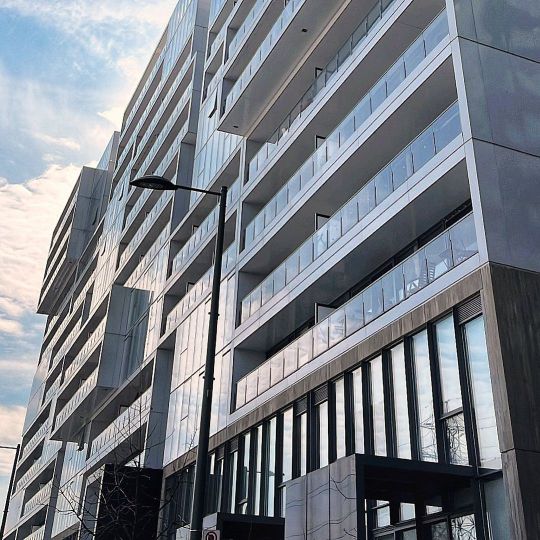
“The sun at home warms better than the sun elsewhere.” -Albanian proverb • • • #igerstoronto #toronto #ontario #canada #westdonlands #corktownto #rivercity #torontophotography #urban_toronto #lookup #architecture #modernism #urbancapital #donvalley #saucieretperrotte (at River City Phase 2) https://www.instagram.com/p/CaVImGOJP82/?utm_medium=tumblr
#igerstoronto#toronto#ontario#canada#westdonlands#corktownto#rivercity#torontophotography#urban_toronto#lookup#architecture#modernism#urbancapital#donvalley#saucieretperrotte
2 notes
·
View notes
Text
Linguistic Diversity Challenge: Middle East and Western Asia Part 1, Armenian
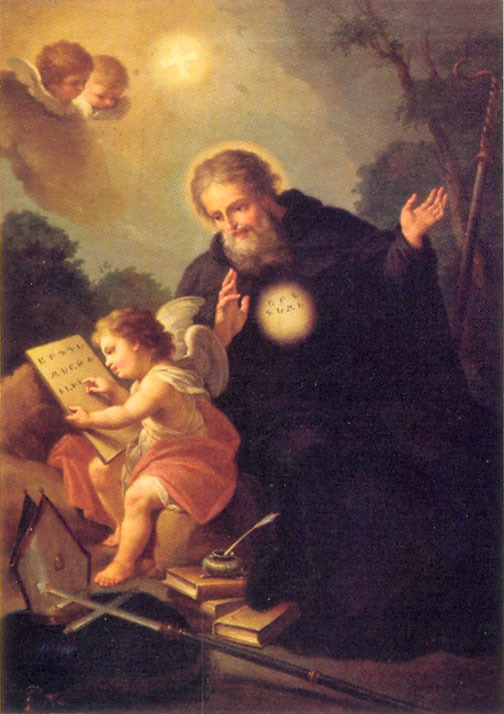
Above: Mesrop creating the Armenian alphabet, by Francesco Maggiotto
For this challenge by @languagessi I'm going to learn about less commonly taught languages in the Middle East and Western Asia. I'm beginning with Armenian (I know Armenia is sometimes considered part of Europe but I figure the language is still not very commonly learned). There are around 6.7 million native speakers of Armenian, which is an Indo-European language that constitutes its own branch within the Indo-European language group, meaning it's not closely related to any other language. There are two standard forms, Eastern and Western Armenian, which are mutually intelligible.
What is the language called in English and the language itself? In English, Armenian is called Armenian (of course), while in Armenian itself, it's known as հայերեն in reformed Armenian (spoken primarily in Armenia itself) or հայերէն in classical Armenian (spoken primarily among the Armenian diaspora.) Both spellings are transliterated as Hayeren.
Where is the language spoken? Armenian is spoken in Armenia as well as by members of the Armenian diaspora worldwide. About half of the total number of Armenian speakers live outside Armenia (according to Encyclopedia Britannica), which I definitely wouldn't have guessed! Georgia and Russia have the largest Armenian populations outside Armenia itself.
How many people speak the language? ~6.7 million
Which language family does it belong to? What are some of its relative languages? Like I said above, Armenian is an Indo-European language with no immediate relatives. Other subdivisions within the Indo-European languages are Albanian, Balto-Slavic, Celtic, Germanic, Hellenic, Indo-Iranian, Italic (which includes Romance languages), Anatolian, Illyrian, Daco-Thracian, Tocharian, and Phrygian.
What writing system does the language use? The Armenian alphabet, which was invented in 405 AD by a priest, Mesrop Mashtots (Մեսրոպ Մաշտոց). The first sentence written in the Armenian alphabet was from the Book of Proverbs: "To know wisdom and instruction; to perceive the words of understanding." In Armenian, it's written as follows: Ճանաչել զիմաստութիւն եւ զխրատ, իմանալ զբանս հանճարոյ (Čanačʿel zimastutʿiwn ew zxrat, imanal zbans hančaroy.)
What kind of grammatical features does the language have? I'm bad at this section because I don't know much about linguistics, so some of the complicated terms go right over my head. But I did think it's cool that Classical Armenian has no grammatical gender, and Armenian as it's currently spoken uses noun cases but no gender for nouns.
What does the language sound like? This video shows the pronunciation of some basic Armenian: https://www.youtube.com/watch?v=EgS3y30n_CM
What do you personally find interesting about the language? I think it's so cool that we know who came up with the writing system, and even what he first wrote! Also, the alphabet is so pretty.
Armenian resources:
Wiki with Eastern Armenian lessons
Lots of other resources listed at the bottom of this Omniglot page
Memrise doesn't have an official Armenian course, but there are several user-made ones.
Wiktionary
And lots of resources in this post!
Sources:
https://en.wikipedia.org/wiki/Armenian_language
https://en.wikipedia.org/wiki/Mesrop_Mashtots
https://omniglot.com/writing/armenian.htm
27 notes
·
View notes
Text
"When the educated silenced, the ignorant thought he left him speechless."
— Albanian Proverb.
Meaning: There is no point in trying to reason with ignorant people, they will always believe they're right.
#albanian proverb#quotes#aesthetic#retro#vintage#book quotes#books#love quote#movie quotes#nemesnate
796 notes
·
View notes
Photo
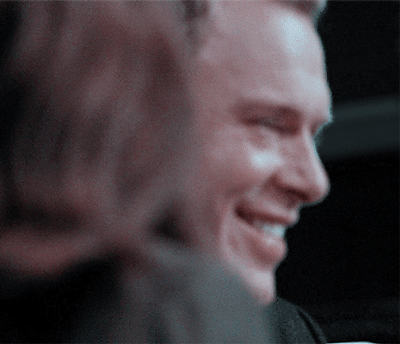


A smile is worth a thousand words.
An Albanian proverb
86 notes
·
View notes
Quote
Mali me mal nuk piqen, njeriu me njeriun piqen
Albanian proverb // A mountain never meets a mountain, but a man meets a man.
#albanian#albania#albanian proverbs#proverbs#shqip#gjuha shqipe#language#lingustics#sayings#albanian sayings#my post
48 notes
·
View notes
Photo
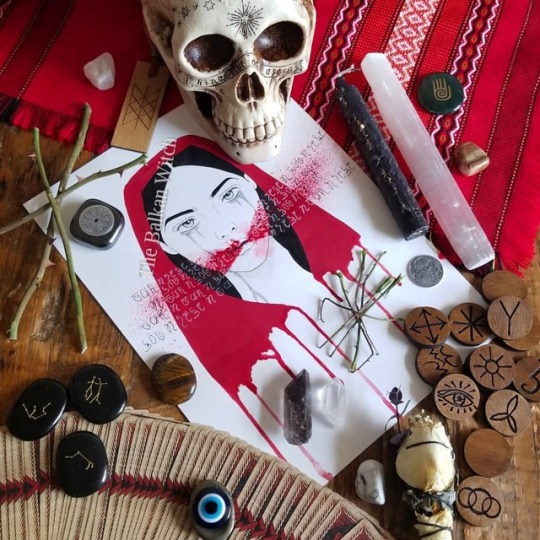
"Shaj e mos e nëmë" • Our thoughts have power and words are spells, spoken aloud, actualized and brought to life. • Pay attention to the words you speak and the thoughts you think; firstly to yourself. Your thoughts shape your state of mind and your mind affects your entire self. • "Shaj e mos e nëmë" is an old Albanian proverb. Translated, it means "swear at someone, but don't curse them." • Our ancestors knew the power of our thoughts, prayers and spoken words. • They can protect but they can also harm; use them accordingly. • • • #thebalkanwitch #thebalkanwitchshop #balkanwitchcraft #balkanmagic #witch #shtriga #magissa #vestica #witchblr #magick #helvetica #vithkuqi #evetari #albanian #kuqezi #pagansofinstagram #witchesofinstagram #witchyart #tarot #runes #candlemagick #banishing #spellcasting #spellwork #drawing #artistsofinstagram #lineart #art #illustrator #graphicdesign https://www.instagram.com/p/BtjR-JznAYN/?utm_source=ig_tumblr_share&igshid=1pbjyucss8nel
#thebalkanwitch#thebalkanwitchshop#balkanwitchcraft#balkanmagic#witch#shtriga#magissa#vestica#witchblr#magick#helvetica#vithkuqi#evetari#albanian#kuqezi#pagansofinstagram#witchesofinstagram#witchyart#tarot#runes#candlemagick#banishing#spellcasting#spellwork#drawing#artistsofinstagram#lineart#art#illustrator#graphicdesign
1 note
·
View note
Photo

this post is meant to be a directory of every resource I come across for Albanian. It will be a continuous work in progress so thank you for your patience! if you have any issues or things to add, please reply to this post!
info
about world languages
albanian dialects
bbc country profile
encyclopaedia britannica
fun facts
glottolog
introduction by @ayearinlanguage
omniglot
playlist of samples
the indo-european database
wikipedia
world atlas of language structures
alphabet
accent codes
albanian alphabet
keyboard - branah
overview of the history of albanian orthography
courses
bliubliu
book2
colloquial albanian [pdf & audio]
dliflc - albanian: supplementary reader, part 1 [scans]
dliflc - basic course [scans]
dliflc - basic course: basic situations [scans]
discovering albanian 1 [pdf]]
lingohut
peace corps
pimsleur [pdf & audio]
university of texas at austin
us state department - albanian: a guide to the spoken language [scans]
cultural & historical info
acultura’s culture tag
dliflc - cultural orientation
overview of albanian names
dictionaries
argjiro
bablefish [translator]
ectaco
fjalori.shkenca
lexilogos
lingvosoft
flashcards
cram
quizlet
forums
quora
/r/albania
/r/shqip
unilang
grammar books & guides
albanian grammar [pdf]
standard albanian: a reference grammar for students [pdf]
grammar points
adjectives
adverbs
articles
gender
negation
nouns
plurals
prepositions
pronouns
questions
listening practice
Bible [audio]
lyrikline [poetry library]
literature
Baha’i prayers
Bible / Bible [scans]
list of albanian poets
list of albanian writers
liturgy of st. john chrysostom
Lord’s prayer
overview by encyclopaedia britannica
overview of albanian literature
Quran [pdf] / Quran [scans]
spoken language services: readings in albanian, pt 1 [scans]
universal declaration of human rights
media
ted talks
movie & tv recommendations
central state film archive
letterboxd
music recommendations
albanian music for almost every emotional love related situation by @voglushja
news
24 orë
ballkan
deutsche welle
newspaper links
radio free europe
voice of america
phrasebooks & travel guides
bbc quick fix
be in kosovo
dliflc - basic survival guide
loecsen [audio phrasebook]
useful expressions
wikitravel
wikivoyage
pronunciation
forvo [pronunciation dictionary]
ipa key
pronunciation guide - wikibooks
sounds unfamiliar to english speakers
the phonetics of albanian - g. s. lowman [scans]
quizzes & exercises
digitaldialects [vocabulary games]
tongue twisters
radio
radio links - radio-locator
sbs radio
social media
google
wikipedia
speaking tips
proverbs
special topics
list of given names
palindromes
tumblrs
@albanian-studies
@albanianvoices
@arberisht
verbs
conjugator - verbix
verbs
vocabulary
animals / animals / animals / animals
art
babadada [vocabulary tool]
body parts
clothing
cognates - illyrian
colors / colors / colors
cute
eurovision
family / family
food / food & cooking / fruits & vegetables
fruits
hair
hobbies
lgbtq+
locations
mental health
months
movie night
nationalities
nature
numbers / numbers / numbers / numbers
seasons
shapes
space
spring
summer / summer
swadesh list
terms of endearment
time
winter
witchy
zodiac
youtube
learnalbanianonline
smart albanian with jonis
violagj
G H E G A L B A N I A N
omniglot [useful phrases]
rosary prayers
T O S K A L B A N I A N
a report of the stanford phonology archive [scans]
overview of albanian morphology
in french / en français
dictionaric [dictionary]
glossary
in spanish / en español
foreignword [dictionary]
#o#albanian#langblr#albanian language#shqip#gjuha shqipe#tosk albanian#gheg albanian#other: french#other: spanish
57 notes
·
View notes
Text
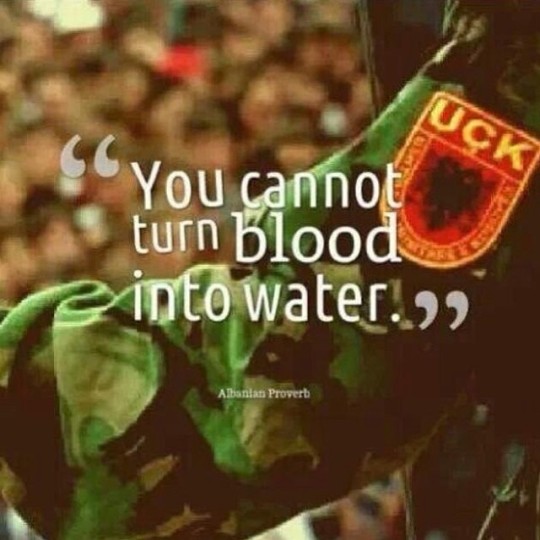
It's not possible to talk about Albanian history without talking about war. That's the reason why there are so many proverbs like this one quoted in the picture above.
2 notes
·
View notes
Photo

He who can read and write has four eyes.
Albanian Proverb
2 notes
·
View notes